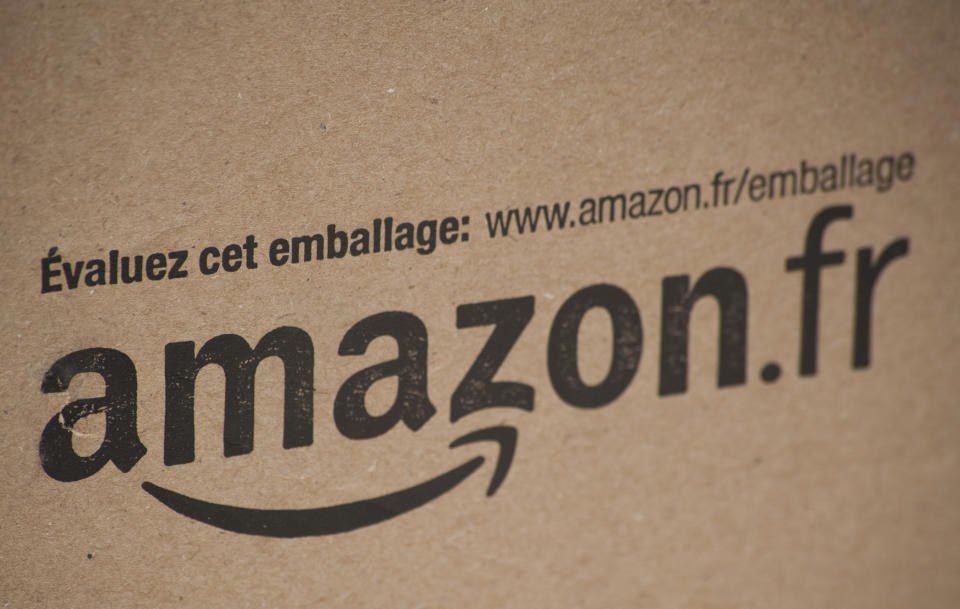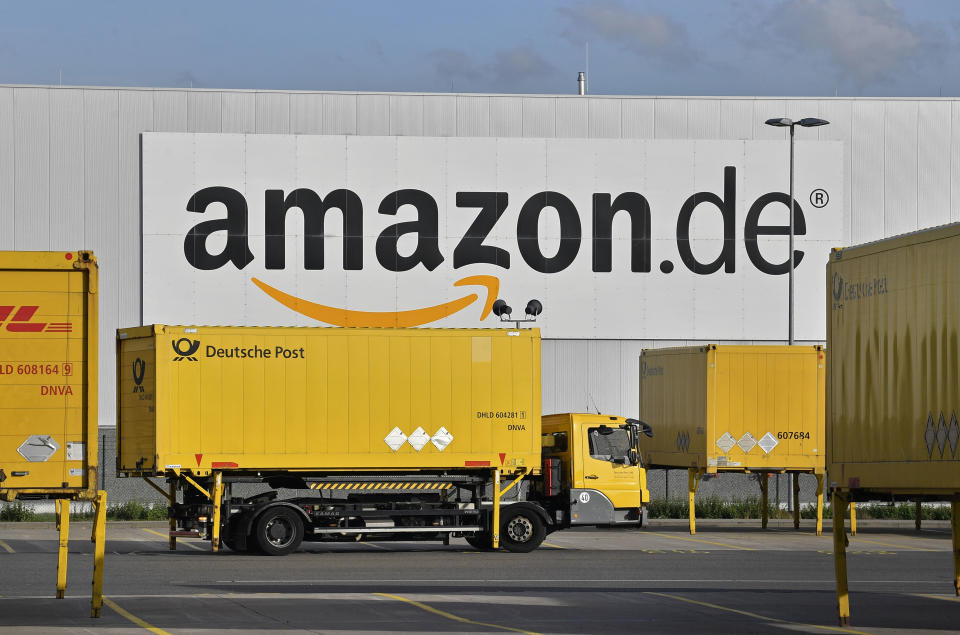Trump administration puts Amazon foreign sites on Notorious Market List

The Trump administration has placed some of Amazon’s foreign sites on its “Notorious Markets” list — a list of marketplaces known for counterfeit and pirated goods.
The U.S. Trade Representative’s office released the annual list on Wednesday morning, saying the goal is to motivate companies and governments to take steps to curb piracy and counterfeiting. The list includes 38 online markets and 34 physical markets, though USTR notes the list is not exhaustive.
USTR added Amazon’s platforms in Canada, Germany, France, India and the United Kingdom to the list, citing concerns that “...seller information displayed by Amazon is often misleading such that it is difficult for consumers and right holders alike to determine who is selling the goods and that anyone can become a seller on Amazon with too much ease because Amazon does not sufficiently vet sellers on its platforms.”
A senior USTR official said stakeholders also reported Amazon’s process of removing counterfeit goods is “lengthy and burdensome.”
In statement to Yahoo Finance, Amazon (AMZN) said it strongly disagreed with the report.
“This purely political act is another example of the Administration using the U.S. government to advance a personal vendetta against Amazon,” said an Amazon spokesperson.
President Trump has repeatedly attacked Amazon and clashed with CEO Jeff Bezos.
Amazons argues it has put resources toward fighting fraud and abuse and has stopped millions of suspected bad actors from opening Amazon selling accounts and posting listings.
“More than 99.9% of pages viewed by customers on Amazon have never had a report of counterfeit, and this is a testament to our continued innovation, collaboration, and commitment to fighting counterfeit. We also work closely with law enforcement agencies and are reporting all confirmed counterfeiters to help them build stronger criminal cases,” said an Amazon spokesperson. “We are an active, engaged stakeholder in the fight against counterfeit, and we call on lawmakers to increase funding and resources for law enforcement agencies so we can hold the real criminals accountable—the current ramifications for tricking consumers are too weak.”
The American Apparel & Footwear Association (AAFA) had urged USTR to add the five Amazon sites to the list. The Wall Street Journal first reported the administration was considering the move last year.
In a statement on Wednesday, AAFA said it welcomed the report — though it did not specifically mention the decision to include Amazon.
“It is essential that both domestic and worldwide marketplaces, and the countries that house them, implement effective and proactive measures to safeguard intellectual property to protect consumers, workers, and their families. This is especially the case during the COVID-19 crisis, when more Americans than ever have made online purchases, which can unknowingly expose them to counterfeits sold on unsafe marketplaces,” said Steve Lamar, AAFA president and CEO.
The USTR said it heard from stakeholders who wanted Amazon to put more resources toward making brand protection programs “scalable, transparent and most importantly, effective.” The USTR encouraged companies on the list to take steps to address piracy and counterfeiting.

“In absence of good faith efforts, responsible government authorities should investigate reports of piracy and counterfeiting in these and similar markets and pursue appropriate action against such markets and their owners and operators,” the report said.
The decision to include a U.S. company’s foreign operations on the list is significant. The list typically targets foreign countries and companies. The USTR did not request comments about U.S.-based platforms, but warned that could eventually be a possibility.
“We’re considering seeking more information regarding e-commerce platforms, including those that are based in the United States in future reviews,” said a senior USTR official.
The USTR said this year’s review also revealed a growing concern about counterfeit goods on social media and said it would further study the issue.
“Platforms can begin to address these concerns by establishing industry-standard IP enforcement policies, increasing transparency and collaboration with right holders to quickly address complaints, and working with law enforcement to identify IP violators,” the report said.
Jessica Smith is a reporter for Yahoo Finance based in Washington, D.C. Follow her on Twitter at @JessicaASmith8.
Read more:
Senator on PPP gridlock: 'It's beyond me why we can't come together'
Democratic congresswoman: Rules for PPP loans are 'too restrictive'
'We're in dire need': Food service shutdown slams dairy farmers, producers
Democratic senators ask for clarity, fixes to small business loan program
Sen. Warren calls on food delivery apps to reclassify workers, increase pay during pandemic

